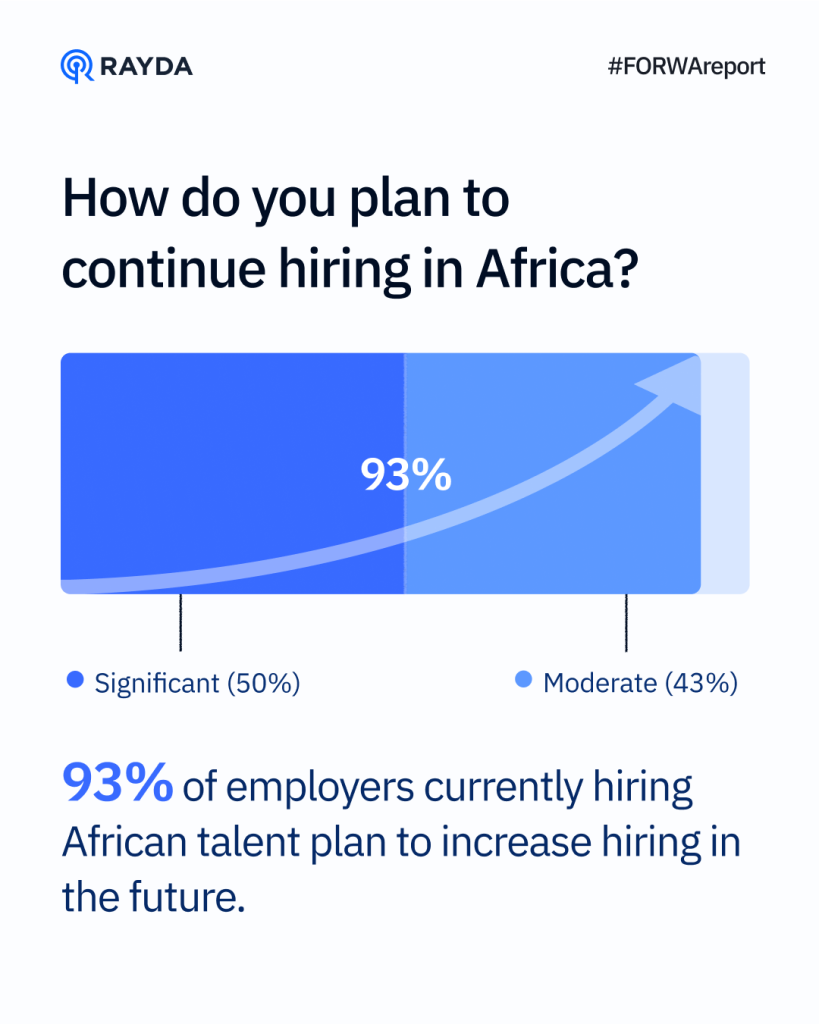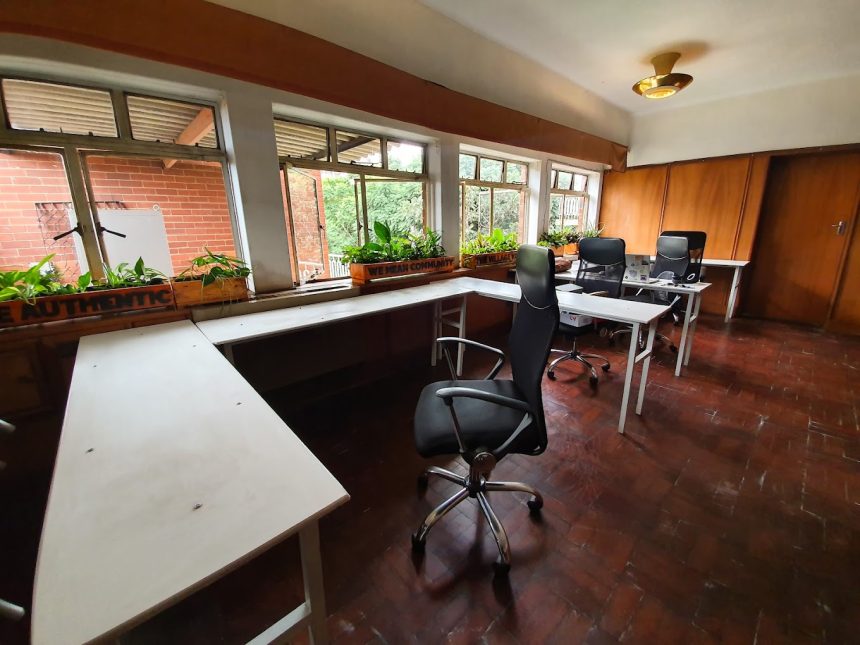Rayda has released the Future of Remote Work in Africa (FORWA) Report, a data-driven look at how remote work is reshaping opportunities, challenges, and policies across the continent.
Why it matters
Africa has the world’s youngest workforce, a fast-growing tech ecosystem, and digitally native professionals. But the continent’s potential in the global remote work revolution is still underutilized, with narratives often based on assumptions rather than hard data.
By the numbers:
- 62% of surveyed companies are already hiring African remote talent; 15% are considering it.
- 93% of employers plan to expand their African hiring.
- 43% of remote professionals earn $1,000–$2,000/month; 14% earn above $3,000 — well above local averages.
- 37% of workers face frequent power issues; 33% report unreliable internet.
- 63% are actively upskilling in AI.
Key findings
- Employers: Drawn by cost efficiency, tech talent, and diverse perspectives. Main hurdles include internet reliability, time zones, and payment logistics.
- Professionals: Motivated by higher pay, flexibility, and career growth, but burdened with self-financed infrastructure (laptops, generators, solar systems).
- Cities leading growth: Lagos (37%), Nairobi (18%), Accra, Johannesburg, and Cairo.

Between the lines
Remote work is fueling upward mobility for African professionals, while employers see the continent as a critical talent frontier. Infrastructure gaps, however, are slowing momentum — and workers are shouldering much of the cost.
What’s next:
- Employers: Invest in internet stipends, equipment, and inclusive global team cultures.
- Professionals: Keep upskilling, especially in AI and digital skills.
- Policymakers: Focus on electricity, connectivity, and progressive regulation to unlock Africa’s global hiring potential.










